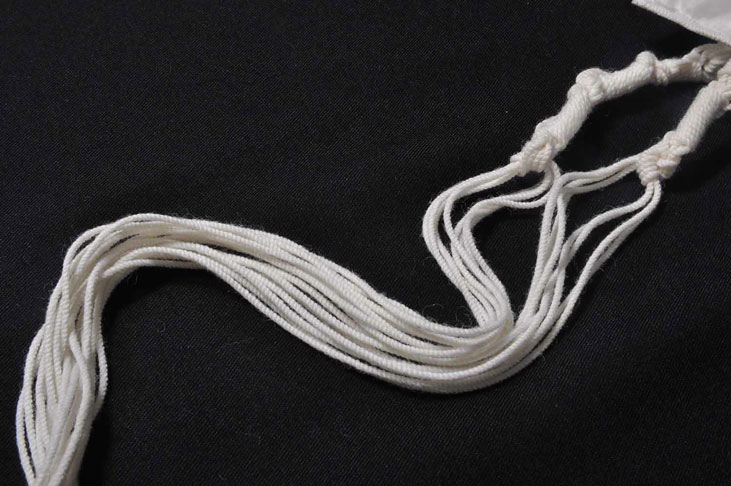Yesterday, we took a drive to Lakewood, the Jerusalem of New Jersey, to buy new titzit (ritual fringes) for the boys before our big departure. The plan was to grab our fringes, pick up kosher pizza, then spend the afternoon swimming at my dad’s house.
Since we live an hour away from this ultra-Orthodox enclave, the abundance of kosher restaurants and grocery stores, sheitel (wig) salons, modest clothing boutiques for women, and synagogues and yeshivas four or five to a block were a new sight for my kids.
When we entered the Judaica store, the boys were blown away.
“Whoa!” Yonah gushed. “A store full of Jewish stuff!”
Kiddush cups, candlesticks, challah trays, Oh my!
“This is what it’s going to be like in Israel, isn’t it?” Akiva asked.
“Yeah,” I said, “but better.”
I’ve long ago made peace with the way I Jew – eschewing skirts and hair coverings for pants and graphic tees, swapping formal liturgy for personal prayer and meditation, and swearing with abandon – but that didn’t mean I wasn’t hyperaware of how much my children and I stuck out in this place. Virtually every male wore a white button-down, black pants, and black velvet yarmulkes, and the women all wore wigs, long skirts, and stockings. I, meanwhile, wore flowy black palazzos, my hair air-dried into a Jew-girl poof. My boys had on sport shorts, t-shirts, sneakers, and brightly colored kippot srugot (knitted yarmulkes).
Yet, I made my way through the store with ease, exchanging friendly smiles with fellow shoppers, as my boys followed like a row of obedient ducklings to the tzitzit section.
Yes, there is an entire section.
An employee with a grin and a salt-and-pepper beard appeared to help with sizes, bantering with me in Hebrew when he found out we were making Aliyah. In less than a minute, we’d slipped samples on and off the younger boys and had new tzitzit in hand.
The sample he offered Yonah, the largest kids’ size, was too small. The next size up was for men, and he was concerned they would be too long on my son.
“Listen, he likes to eat,” the guy joked, gesturing to Yonah. “In Hebrew, we call him, ‘Maleh (full).’ I don’t like to use the ‘F word…’”
His comment spilled over me like a can of red paint on a white floor.
In situations like these – and there have been many in my lifetime – I’d always been taught to smile and nod, take my anger with me, then comfort myself by bashing the culprit to anyone who would listen. (What can I say? I’m a Jewish woman in America.) The habit kicked in automatically here, and I said nothing as we tried the next size up. They fit perfectly on my son, who is tall, so we gathered our packages and headed for the checkout.
But something wasn’t right.
As we stood in line, I noticed a change in Yonah’s face: his skin was flushed, his eyes wide and cast to the side, reflecting the shame he felt.
“Are you okay?”
He mumbled something about the guy deserving a well-placed kick.
Instinctively, I shifted to comfort mode: “Listen, the fact that he said something about your body means the problem is with him, not you.”
I was instantly transported to my own pre-adolescence, when comments other people made about my body would topple me like a Jenga tower. My mother would do and say everything she could to make me feel better afterward, but it never did.
And I realized why now.
When someone is hurt, trying to cajole them out of their pain just hurts them more. It invalidates what they’ve just gone through – especially if no one says that what was done to them was wrong.
And what had been done to my son was wrong. Despite the permission our culture gives to comment on other people’s bodies – especially bigger bodies – it’s not okay to do so. Even more so to a child.
As we neared the register, I had the growing sense that I was supposed to take action.
“Do you want me to say something?” I asked Yonah, though I was really asking myself.
By the time we checked out, the message was clear: “I have to say something.”
The boys, likely terrified that I would lambaste the guy, stayed up front.
I weaved through the crowded aisle and back to the tzitzit section, where I found our old friend. I was strangely calm, my mind quiet. The words just came.
“Thank you for your help. I wanted to tell you that what you said about my son hurt him and made me uncomfortable.”
His smile disappeared. “I’m sorry…I was just trying to make a joke, you know, because he…”
As if this made it acceptable.
“I used to be obese, and I heard things like that,” I said. “I imagine you’ll come across all different types of bodies in this store. You might want to think about that.”
“I’m so sorry. Please tell your son I’m sorry.”
And that’s exactly what I told Yonah, who gave a small, satisfied smile.
“That guy deserved to get his ass handed to him,” said Akiva.
“Listen, everyone makes mistakes. But if someone says something to you that you don’t like, you can tell them.”
“Yeah,” said Yonah, “Like, ‘That’s disrespectful and I don’t like it.’”
“Exactly.”
On the twenty-minute drive to my dad’s, I thought over the whole exchange. Was I strong enough with the guy? Should I have complained to the manager, written a horrible Yelp review, made an uproar on social media?
No, I realized. The louder I yelled, the harder it would have been to hear me. The guy would have written me off as a crazy Jewish mother.
And, it would have been more about me than my son.
As for Yonah, would he be scarred by this experience? Would it define him forever? Would it destroy his self-esteem?
For the fourth time, I asked Yonah if he was okay.
“Ma,” said Akiva, “I think it bothered you more than it bothered him.”
“Yeah,” Yonah added, head in his ipad. “I’m over it already.”
Okay, so maybe Akiva’s right. Maybe it did bother me more. But I’d like to think that if Yonah looks back on this day, the part that will stick out won’t be what the guy said, but that his mother didn’t accept unacceptable behavior. She went back to speak up for him – and herself.
So that, one day, he will, too.












